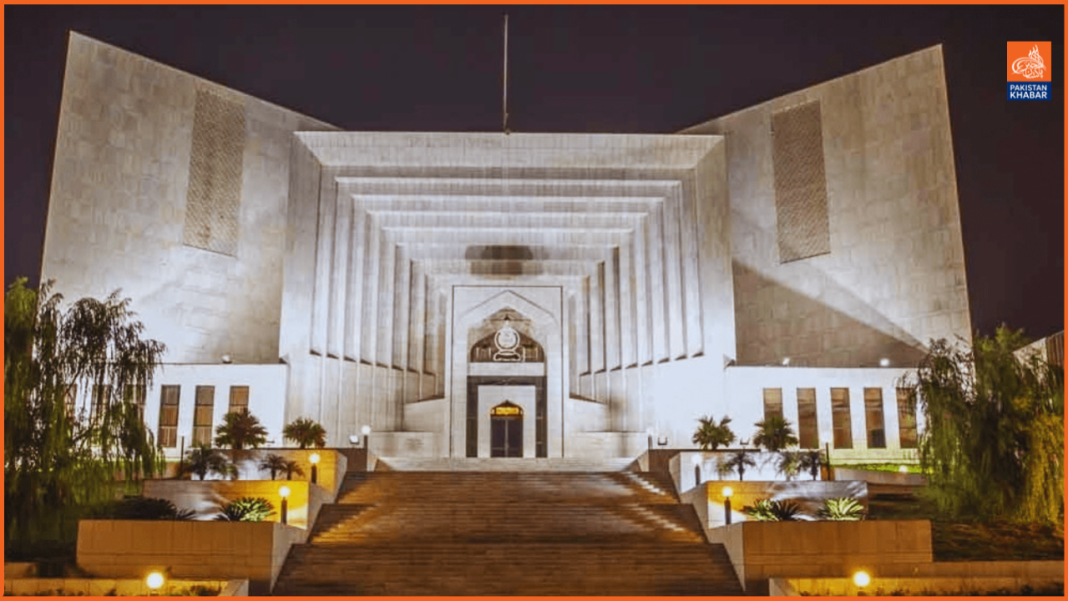On Tuesday, the Supreme Court resumed proceedings on a petition challenging the 2022 ruling concerning the defection clause stipulated in Article 63-A of the Constitution. This review petition was brought forth by the Supreme Court Bar Association (SCBA) and was scheduled to be heard by a five-member bench led by Chief Justice of Pakistan (CJP) Qazi Faez Isa. The bench comprised Justices Munib Akhtar, Aminuddin Khan, Jamal Khan Mandokhail, and Mazhar Alam Khan Miankhel.
Article 63-A, which was introduced in 2010, was designed to address issues of defection, or “floor-crossing,” within the assembly. As noted by former Supreme Court judge Faisal Arab in a 2022 article, the article mandates that lawmakers must vote according to the unified stance of their parliamentary party during significant events, such as electing chief ministers or casting votes of confidence and no-confidence. This provision aims to ensure that political parties maintain a cohesive approach during critical decision-making processes.
However, complications arose when Justice Akhtar opted not to participate in the appeal. He raised concerns about the inclusion of Justice Mazhar Alam Khan Miankhel as an ad hoc judge on the bench. In his correspondence, Justice Akhtar made it clear that his absence should not be regarded as a formal recusal. He expressed his dissatisfaction with the fact that the appeal was being heard by a four-judge bench rather than the full complement of five judges who originally presided over the case.
In response, CJP Isa stated his intention to encourage Justice Akhtar to join the proceedings. However, he also indicated that if Justice Akhtar maintained his position, the bench would need to be restructured. Consequently, a meeting was convened to appoint a fifth judge. The minutes from this meeting revealed that Justice Mansoor Ali Shah, the senior puisne judge, was initially proposed for the role. Nonetheless, Justice Shah declined to attend, citing his discontent with recent alterations to the bench formation process. Subsequently, the committee appointed Justice Naeem Akhtar Afghan as the fifth member, as his schedule would allow him to join without disrupting other court activities.
The ruling from May 17, 2022, declared that votes cast against the directives of a parliamentary party under Article 63-A would not be recognized. This ruling carries significant implications for lawmakers, as it effectively restricts their voting autonomy by binding them to the decisions of the party leadership. Violations of Article 63-A can lead to serious consequences, including disqualification from the assembly and the loss of one’s seat.
The SCBA petition further argued that the original intent behind Article 63-A was to temporarily disregard defecting votes to maintain stability during the Constitution’s formative years. It contended that the Supreme Court’s interpretation of the article amounted to a reworking of the Constitution itself, which contradicts the court’s previous stance on strictly adhering to the explicit language of constitutional provisions without inferring additional meanings. This ongoing legal discourse underscores the complexities surrounding party loyalty and democratic governance in Pakistan, highlighting the delicate balance between individual lawmakers’ rights and the collective interests of their political parties.




